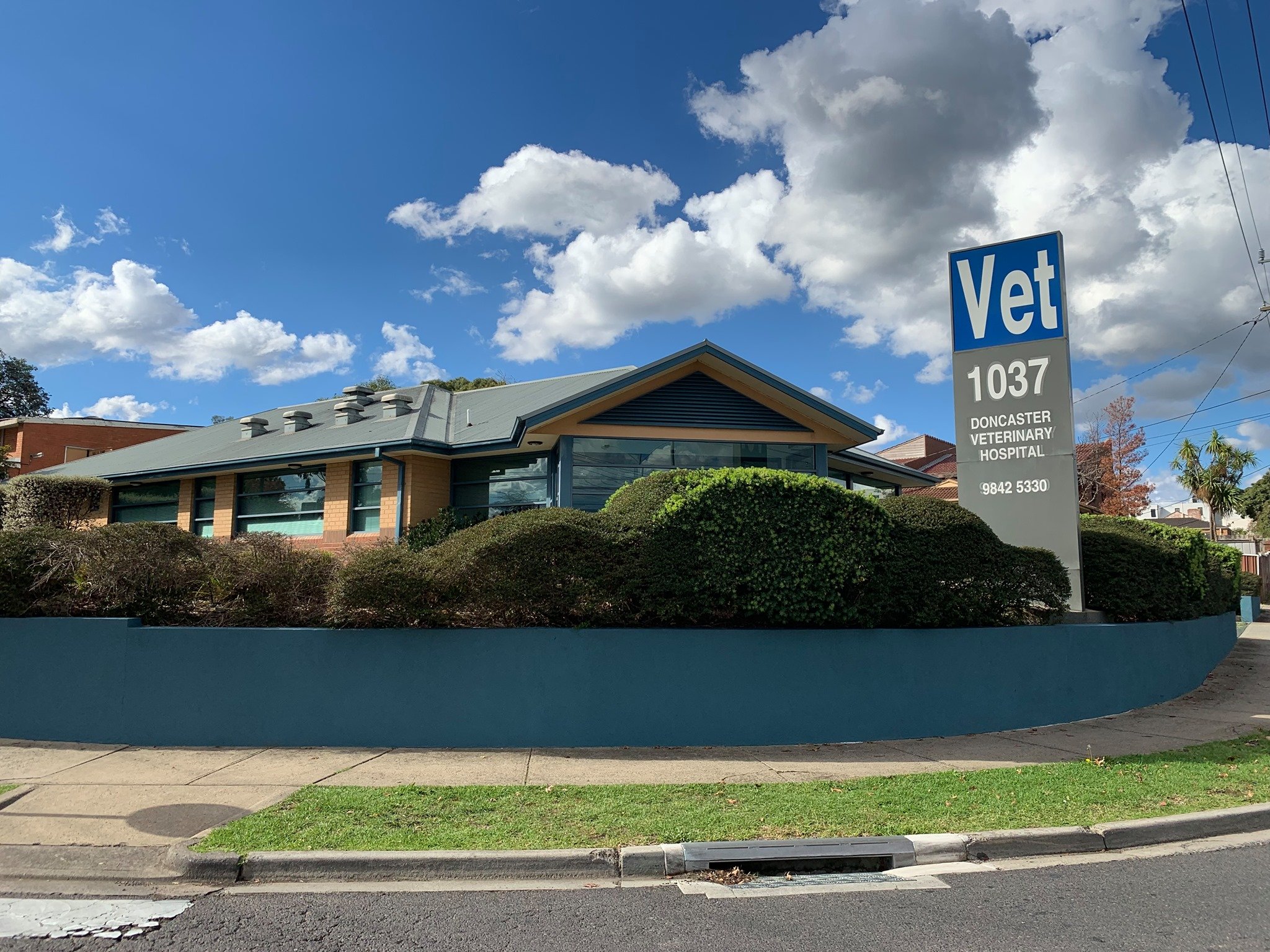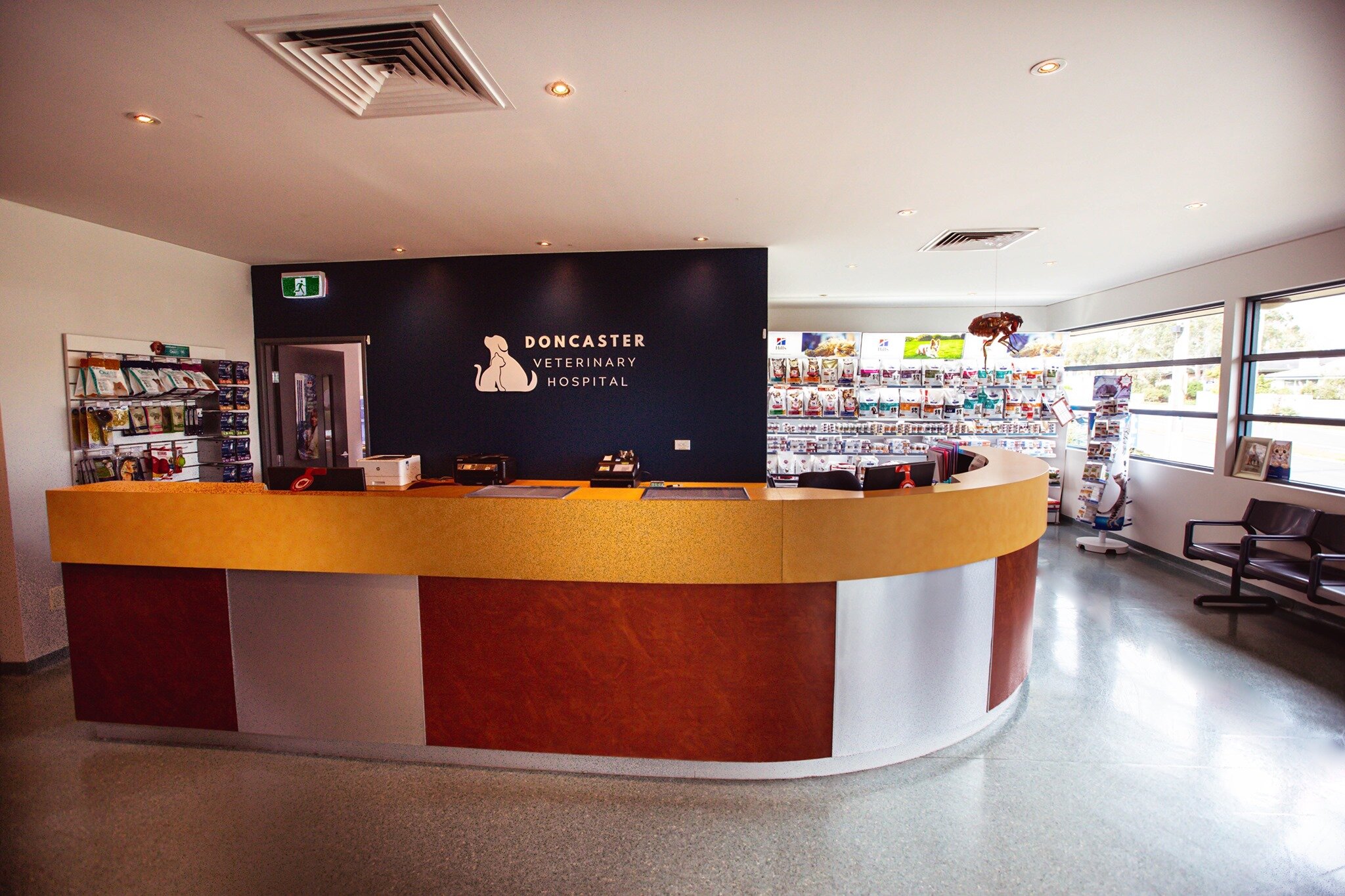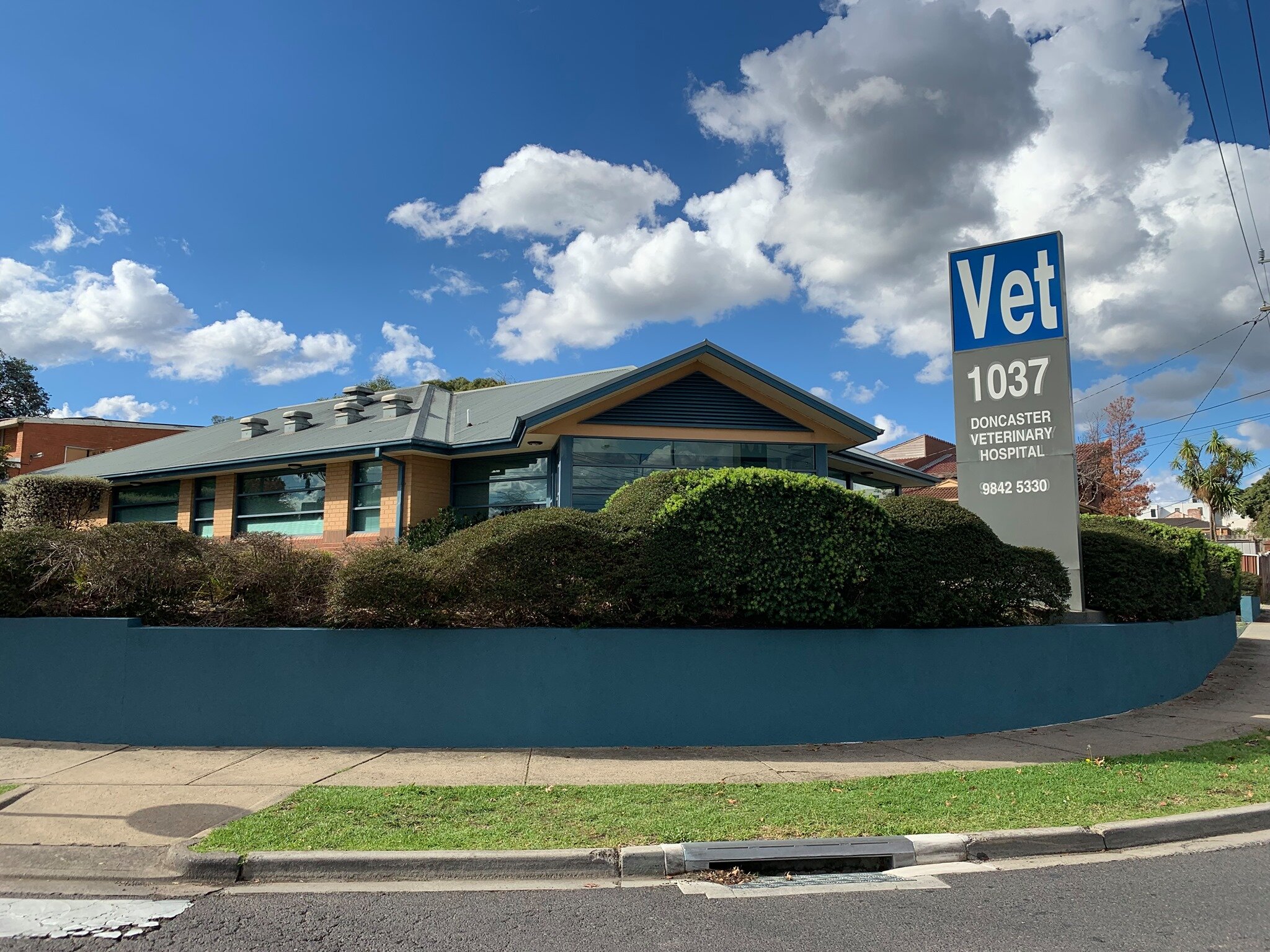Female dog desexing in Melbourne
At Doncaster Vet Hospital, we believe desexing your female dog is an important decision that can lead to a healthier and happier life for your furry friend. Our experienced vets are passionate about keeping your female dog healthy and all trained for an informed discussion around desexing.
What is desexing?
Female dog desexing, also known as spaying, is a surgical procedure that involves removing the ovaries and uterus of a female dog. At Doncaster Veterinary Hospital we remove the ovaries only. This procedure is called an ovariectomy and has reduced risks of retained ovarian tissue and stump pyometra, which is why we do this in preference to removal of the ovaries and uterus. This is a permanent procedure that cannot be reversed. Female dogs will no longer come on heat and can't become pregnant.

Looking to get your female dog desexed in Melbourne?
When to get your female dog desexed
We recommend desexing your female dog after her first heat. However, the best time to desex your dog may depend on her breed, size, and health status and needs to be discussed with your vet.
We recommend scheduling a consultation with one of our veterinarians to determine the best time for your dog.
The benefits of desexing your female dog
There are many benefits to having desexed female dogs, including the following:
Reducing the risk of certain health problems
Desexing a female dog, also known as spaying, can help prevent several health problems and reproductive diseases, including:
Mammary cancer: Desexing a female dog before her first heat cycle can significantly reduce the risk of mammary tumours.
Uterine Infections: Desexing eliminates the risk of uterine infections, also known as pyometra, which can be life-threatening and require emergency treatment and sometimes emergency surgery.
Ovarian Cancer: By removing the ovaries and uterus, desexing can eliminate the risk of ovarian cancer in female dogs.
It is important to note that while desexing can significantly reduce the risk of these health problems, it is not guaranteed that your dog will never develop them. Regular veterinary check-ups and preventive care are still essential for maintaining your dog's health and well-being.
Common side effects of female dog desexing
Around 80% of female desexed dogs will develop urinary incontinence.
Increased length of long bones if desexing is done before puberty.
Weight gain.
Hair coat changes.
Increased incidence of cruciate disease.
Increased incidence of some forms of cancer.
Many of these side-effects can be treated and or prevented, our vets are open to discussion of this in your check up appointment.

Do you have more questions about dog desexing? Give our friendly team a call today!
What happens when your dog gets desexed
Pre-surgery
It's important to come in for a consultation prior to getting your dog desexed. This is so the vet can check your dog's health and if she is on heat.
The night before your surgery, you must take away all food; water is okay. This is to reduce the chances of your dog vomiting during surgery. If your dog accidentally eats something, please let our team know.
You must drop your dog at the clinic first thing in the morning. We will give you some paperwork to fill out and sign to ensure all details are correct and that give permission for the procedure.
The desexing procedure
Before the procedure, your dog might receive a pre-anesthetic exam and blood work to ensure she is healthy enough for surgery and an intravenous drip to keep her hydrated. These are generally recommended for older dogs. She will also be given sedation to ensure she is calm before surgery.
During the procedure, your dog will be placed under general anesthesia, and the veterinarian will perform the ovariectomy laparoscopically. After the procedure, your dog will be monitored closely as she wakes up from anesthesia and is given pain relief. Once she's recovered, we'll call you to pick her up and then go through detailed instructions for her post-operative care.
Post-operative care
Your dog will need special care and attention following her desexing procedure. It is important to restrict her activity for a few days after the surgery and to keep her calm and comfortable. You will need to monitor her incision site for signs of infection or swellings. We will provide you with detailed instructions for post-operative care, including information on pain management, feeding, and exercise restrictions.
Some dogs like to chew their wounds. This will need to be prevented. Use a cone or ask your vet for dimethyl phthalate (a bitter liquid) so you can dab around the surgical site. It tastes horrible, so they'll stop licking very quickly!
Risks and complications of desexing female dogs
Like any major surgery, there are some risks associated with desexing your female dog. These can include bleeding, infection, and adverse reactions to anesthesia. However, the risks associated with desexing are relatively low, and the benefits to your dog’s health and well-being are significant. We minimise all of these risks by only performing the procedure laparoscopically.
Female dog desexing costs
As we only perform female desexing laparoscopically, the cost of desexing female dogs is a little more expensive than what other clinics will charge, however we believe the benefits to laparoscopic speys outweights the slight increase in cost. The cost of desexing your female dog can depend on its breed, weight and age.
The cost may also increase if your dog requires pre-anaesthetic blood tests or if your dog has a hernia that will need to be fixed while in surgery.
To get a quote for desexing your female puppy or dog, contact our friendly team at 9842 5330 to make an appointment with one of your vets.
Female dog desexing in Melbourne
At Doncaster Vet Hospital, we are committed to providing the highest quality care for your furry friend. If you are considering desexing your female dog, we are here to help.
Our experienced veterinarians will provide personalised care and attention to ensure your dog’s safety and comfort throughout the procedure and recovery process.






